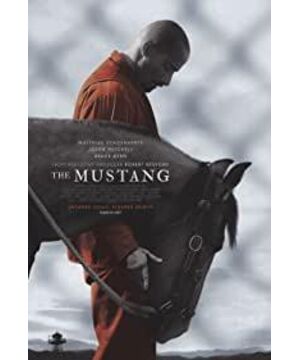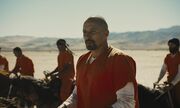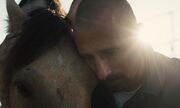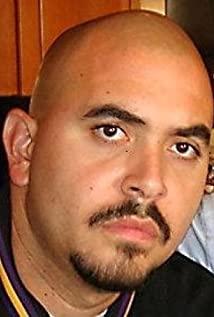"Mustang" is a French and Belgian drama film directed by Laurie de Clermont-Tonnel and starring Matthias Schoenaerts and Gideon Aido. The film was released in the United States on March 15, 2019.
1. A horse and a man
Roman is the most difficult prisoner to manage. He is withdrawn, addicted to violence, and exudes an air of keeping strangers away.
In fact, not only strangers, but even his wife who stayed with him day and night could not escape his violence.
The injury to his wife made him immersed in self-blame and guilt. This guilt has been guilt for twelve years.
In fact, external injuries can be forgiven, but injuries from loved ones can never be forgiven.
Because this kind of damage is not only physical damage, but also mental damage. They are like sharp knives, and every time I think of them, blood will be drawn again on the wounds that have already healed.
He knew this well, so he never expected to get out of prison. In order to avoid the recurrence of the tragedy, he did not want to communicate with others or have friends. He closed himself in a small inner world. For more than 12 years, he was only himself.
At this time, something big is happening in America outside of prison.
Overpopulation lacks resources, and the previous living space cannot meet people's normal living needs. In response, the US government decided to shift the focus of development to the undeveloped western region.
It's a wasteland, where 10,000 wild horses live. In order to compete for living space, people began to tame wild horses.
The process of taming is not smooth, some wild horses with naughty characters cannot be tamed, and there are often hurtful incidents. The government came up with a good way to get the prisoners to tame these horses.
This time, Roman got a batch of horses, which he named Marchis.
Marchis has a strong nature, and it is extremely difficult to tame it.
Roman didn't want to tame him. He didn't know much about horse taming. He regarded horses as pets and friends. Roman, who had been alone for twelve years, gave all his joys and sorrows to Marchis.
Some people are an isolated island, outsiders can't get in, and he can't get out himself. During the 12 years he was almost isolated from the world, he saw too many scenery, but he did not find his own scenery.
Until the arrival of Marchis, this gap was broken.
As a result, such a scene appeared in the wilderness of the American West: a man named Roman and a wild horse named Marchis, dependent on each other.
2. The man who can't go home and the wild horse who can't get out
Roman seems to have changed, he seems to be a little happy, and there is even good news from the prison that his daughter has come to visit him.
Apart from his wife, the only connection he has with the outside that can be proven is his daughter. The arrival of the daughter is like when God is saying to him: "You have not been forgotten by the world."
Roman came to see his daughter full of joy, but her daughter handed him an agreement very calmly.
It was an agreement to sever the father-daughter relationship. The purpose of the daughter's visit this time was to get Roman to sign the agreement.
The hope that suddenly ignited was like a candle in the dark, illuminating a world in Roman's heart. But that cold agreement was a hurricane, which not only blew out the candle, but also ripped through Roman's heart.
He is alone and alone. No one in the outside world has anything to do with him anymore. He is alone and has nothing.
He can never go home again.
Desperate grief awakened the violent element in him, and he poured that anger on Marchis.
Violent and violent collisions take place recklessly in the western wasteland, with both man and horse attacking each other hysterically, and in the end, Roman is almost trampled to death by Marchis.
Although Marchis is strong, he is extremely human. It understood Roman's grief hidden behind violence, and it vaguely understood that it was the same as Roman.
It's a horse to be tamed, and it's kept in the training ground and never gets out.
So Roman, who can never go home, reconciles with Marchis, who can never go out. Their souls resonated again, comforting each other in the lonely world.
This consolation changed Roman's life and Marchis's fate.
3. People and horses are never tamed
Roman began to face himself, he opened his heart and begged to see his daughter one last time. It was on this side that he untied the knot in his daughter's heart, and her daughter also dispelled the pain in his heart.
In the end, the father and daughter reconciled.
The taming date is over, and there are only two outcomes for these wild horses: successfully tamed, called an auction item, and kept in captivity by humans. Or tame fails, loses value, and is sentenced to death.
Marchis listened to Roman's words very much. Under Roman's order, Marchis passed the audit and became a successful tamed wild horse.
But when it was pronounced successful, it was no longer a mustang. Since it is a wild horse, how can it be tamed?
It seemed to recall its distant hometown, or to see through the purpose of this audit, and it began to go berserk. It ignored Roman's dissuasion, kept running and struggling, and even hurt Roman when it got out of control.
Obviously, such a horse is not qualified, waiting for it, only death.
The sky is huge, and the big one makes people very small. In that vast western wasteland, he had lived alone in torment for twelve years, and the appearance of Marches gave him comfort and hope.
There is something called redemption missing in his life.
At that moment, no one knew what he was thinking, but he opened the iron door without hesitation, and Marchis rushed out.
He let Marches go, for which he was given an extended release.
But he didn't regret it, because the moment Marchis rushed out, his dilapidated soul was finally redeemed.
He will never be tamed, he gradually learns to reconcile, to live with his daughter, with himself.
Marchis will never be tamed, it gallops on the uninhabited wasteland, where it is its home.
The film "Wild Horse" is not a big production in the popular sense. It is more like a documentary, which records a period of Roman's mental journey and records the regaining of freedom of a wild horse. Although it seems plain as water, if you look closely, you will be moved by the meaning.
Written at the end: For Roman's injury to his wife, it is unforgivable. The horse redeemed him, but who will redeem his wife? Some people are like wild horses, they can never be tamed. When you meet such a man, woman, you must not have the heart of the Virgin Mary.
View more about The Mustang reviews











